International Conference
Speakers
|
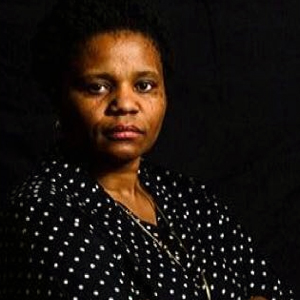
Prof Grace Khunou |
Keynote speaker: Prof Grace Khunou (Associate Professor in the Sociology Department and Vice-Dean at the University of Johannesburg) Grace Khunou is Associate Professor in the Sociology Department and Vice-Dean at the University of Johannesburg. She writes creatively and academically and has published in peer-reviewed journals, book chapters and research reports; she has also presented more than thirty papers in international and local conferences and reviews articles for SARS and other local academic journals. Her research interests are gender and health, father connections and father identity, black middle class; gender and HIV, social policy and higher education/practice-linked knowledge initiatives. She has taught various undergraduate and post-graduate courses in Sociology and Social Work QualificationsDoctor of Philosophy in Sociology 2007 Master of Arts in Sociology – 2001 Bachelor of Arts with Hons. in Industrial Sociology - 1999 Bachelor of Arts – 1998 |
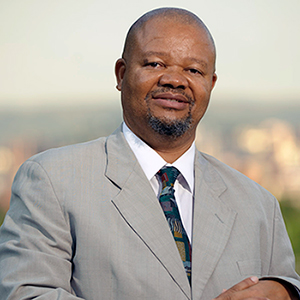
Prof Mandla Makhanya (Unisa Principal and Vice-Chancellor)
|
Prof Mandla Makhanya (Unisa Principal and Vice-Chancellor) Prof Makhanya was born in Durban and started his schooling at Sinamuva Catholic School in Tongaat. He then moved to Mshwathi Memorial School where he completed his primary school education. Thereafter, he started his secondary school education at KwaMakhutha High School. Before he could complete his studies there, there were student uprisings which resulted in the suspension of all student leaders. He was one of the students suspended from school. The student leaders were reinstated, however, when they won a court case against their suspension. He then went to the University of Fort Hare, a period which was marked by numerous expulsions from the University. During those periods, he worked for a municipality. On 1 January 2011, Prof Makhanya took up the position of Principal and Vice-Chancellor of the University of South Africa. Prior to this, he held the positions of Pro-Vice-Chancellor of the University of South Africa (from 1 January 2008 to 31 December 2010), Executive Dean of the College of Human (from 2004 to 2007) and Dean of the Faculty of Humanities and Social Sciences at the old Unisa. Before that, Prof Makhanya worked in the sales and marketing division of a multinational company until he was recruited to the lecturing staff at Unisa. Prof Makhanya holds a BA and BA (Hons) in Sociology from the University of Fort Hare, a master's degree from the University of Natal and a DPhil from the University of Pretoria. In 2009, he completed the Advanced Management Program at the Harvard Business School. The University of Athabasca in Canada conferred an honorary doctorate on Prof Makhanya in recognition of his outstanding leadership at Unisa and his contribution as a distinguished scholar in distance education. For more information on Prof Makhanya, visit his website. |
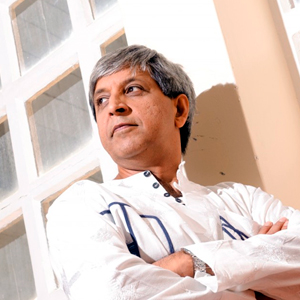
Prof Adam Habib (University of the Witwatersrand Principal and Vice-Chancellor)
|
Prof Adam Habib (University of the Witwatersrand Principal and Vice-Chancellor) Adam Habib is an academic, researcher, activist, administrator, and renowned political commentator and columnist. A Professor of Political Science, Habib has over 30 years of academic, research and administration expertise, spanning five universities and multiple local and international institutions, boards and task teams. His professional involvement in institutions has always been defined by three distinct engagements: the contest of ideas, their translation into actionable initiatives, and the building of institutions. Habib is currently the Vice-Chancellor and Principal of the University of the Witwatersrand (Wits). He is also the Chair of Universities South Africa, which represents vice-chancellors and higher education in the country. In these roles, he has been working with government, students and other stakeholders to find solutions to the recent wave of protests around funding for higher education. He has also focussed on building African research excellence, and together with the University of Cape Town, Wits initiated the African Research Universities Alliance (ARUA). Prior to joining Wits, Habib served as Deputy Vice-Chancellor for Research, Innovation, Library and Faculty Coordination at the University of Johannesburg (UJ). He was instrumental in transforming UJ following the nationwide mergers of tertiary institutions in 2005 and played a key role in increasing research output. He also served as Research Director on Governance and Democracy, and Executive Director at the Human Sciences Research Council. He held several academic and research posts at the University of Natal, including Professor in the School of Development Studies and Research Director of the Centre for Civil Society. Habib holds qualifications in Political Science from three universities, including the University of Natal and Wits. He earned his masters and doctoral qualifications from the Graduate School of the City University of New York. Transformation, democracy and development are fundamental themes of his research. His latest book, South Africa’s Suspended Revolution: Hopes and Prospects, has informed debates around the country’s transition into democracy, as well as its prospects for inclusive development. Habib’s contributions recently resulted in his election to the American Academy of Arts and Sciences, in addition to serving as a fellow of both the African Academy of Science and the Academy of Science of South Africa. |
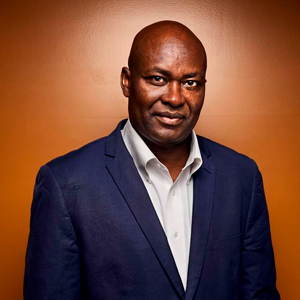
Prof Achille Mbembe Image source: http://www.liberation.fr |
Prof Achille Mbembe Prof Achille Mbembe, born in Cameroon, obtained his Ph.D in History at the Sorbonne in Paris in 1989 and a D.E.A. in Political Science at the Institut d’Etudes Politiques (Paris). He was Assistant Professor of History at Columbia University, New York, from 1988-1991, a Senior Research Fellow at the Brookings Institute in Washington, D.C., from 1991 to 1992, Associate Professor of History at the University of Pennsylvania from 1992 to 1996, Executive Director of the Council for the Development of Social Science Research in Africa (Codesria) in Dakar, Senegal, from 1996 to 2000. Achille was also a visiting Professor at the University of California, Berkeley, in 2001, and a visiting Professor at Yale University in 2003. He has written extensively in African history and politics, including La naissance du maquis dans le Sud-Cameroun (Paris, Karthala, 1996). On the Postcolony was published in Paris in 2000 in French and the English translation was published by the University of California Press, Berkeley, in 2001. In 2015, Wits University Press published a new, African edition. He has an A1 rating from the National Research Foundation. |
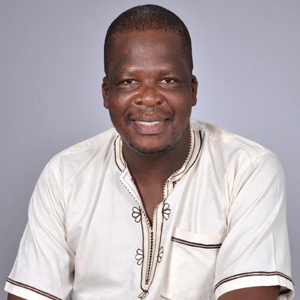
Prof Sabelo J Ndlovu-Gatsheni |
Prof Sabelo J Ndlovu-Gatsheni Sabelo J. Ndlovu-Gatsheni is Professor, founding Head of Archie Mafeje Research Institute for Applied Social Policy (AMRI) and currently Director for Scholarship at the Change Management Unit (CMU) in the Vice-Chancellor’s Office at Unisa. He is also the founder of Africa Decolonial Research Network (ADERN) based at Unisa. He is a National Research Foundation (NRF) rated social scientist; a member of the Academy of Science of South Africa (ASSAf); a Fellow of African Studies Centre (ASC) in the Netherlands; and a Research Associate at the Ferguson Centre for African and Asian Studies at The Open University in the United Kingdom. His major publications include The Ndebele Nation: Reflections on Hegemony, Memory and Historiography (Amsterdam & Pretoria: Rosenberg Publishers & UNISA Press, 2009); Do ‘Zimbabweans’ Exist? Trajectories of Nationalism, National Identity Formation and Crisis in a Postcolonial State (Oxford & Bern: Peter Lang International Academic Publishers, 2009); Redemptive or Grotesque Nationalism? Rethinking Contemporary Politics in Zimbabwe (Oxford & Bern: Peter Lang International Academic Publishers, 2011); Empire, Global Coloniality and African Subjectivity (New York & Oxford: Berghahn Books, June 2013); Coloniality of Power in Postcolonial Africa: Myths of Decolonization (Dakar: CODESRIA, 2013); Nationalism and National Projects in Southern Africa: New Critical Reflections (Pretoria: Africa Institute of South Africa, 2013); Bondage of Boundaries and Identity Politics in Postcolonial Africa: The ‘Northern Problem’ and Ethno-Futures (Pretoria: Africa Institute of South Africa, 2013); Mugabeism? History, Politics and Power in Zimbabwe (New York: Palgrave Macmillan, August 2015); Decolonizing the University, Knowledge Systems and Disciplines (North Carolina, Carolina Academic Press, April 2016) and The Decolonial Mandela: Peace, Justice and Politics of Life (New York and Oxford: Berghahn Books, March 2016) He is former Editor-In-Chief of the Africa Insight published by Africa Institute of South Africa (AISA) and the Human Sciences Research Council (HSRC) in South Africa and former Deputy Editor of the International Journal of African Renaissance Studies published by the University of South Africa Press and Francis and Taylor. |
Last modified: 2017/07/21